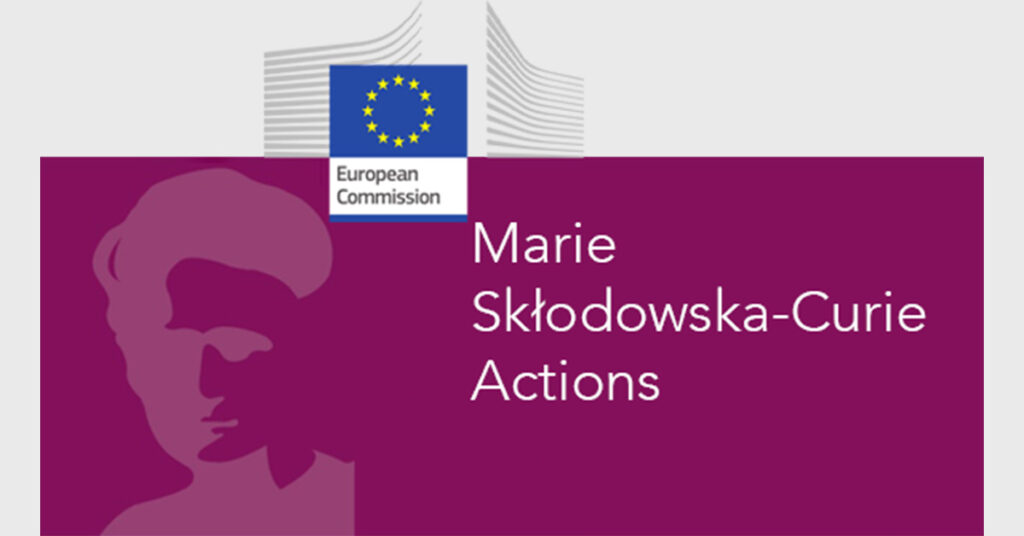News
2021 Career Launchpad Award for LIH researcher
- Department of Infection and Immunity
- Cancer
- Metabolic Diseases
- Tumor Immunotherapy and Microenvironment
- Immuno-Pharmacology and Interactomics

Translational immune-oncology project to be supported by the scheme
Dr Martyna Szpakowska, scientist within the Immuno-Pharmacology and Interactomics group of the Department of Infection and Immunity (DII) and the Tumor Immunotherapy and Microenvironment group of the Department of Oncology (DONC), was awarded a EUR 10,000 grant under the LIH Wolfgang Baertz Career Launchpad Award (Legs W. Baertz) programme at the end of May 2021. The funding will allow her to develop an innovative type of antibody that targets and neutralises a receptor with a newly-discovered role in the infiltration of cytotoxic immune cells in the tumour microenvironment and in subsequent tumour recession. This transversal and translational project has the potential to significantly advance cancer immunotherapies.
Cancer immunotherapy based on drugs known as Immune checkpoint inhibitors (ICIs) is very promising for the treatment of many advanced and aggressive cancers. ICIs act by removing the “brakes” on the immune system and unleashing an immune attack on cancer cells. However, only relatively few cancer patients show significant therapeutic benefits when treated with ICIs alone, since the efficacy of these drugs depends on the infiltration of cytotoxic immune cells into the tumour bed. Therefore, there is a strong clinical need to design combinatorial therapies that drive immune cells into poorly infiltrated tumours, thereby improving response rates and extending the use of ICI-based immunotherapies to a larger number of patients and cancer types.
DII researchers Dr Szpakowska and Dr Andy Chevigné, in collaboration with Dr Bassam Janji and Dr Muhammad Zaeem Noman from the Tumour Immunotherapy and Microenvironment (TIME) group at DONC, had previously brought forward the potential of certain chemokine receptors, expressed on the surface of cancer cells, as valuable druggable targets, the inhibition of which was shown to increase the recruitment of immune cells into the tumour microenvironment. Specifically, the team aims to identify so-called nanobodies to block and neutralise these receptors.
“Nanobodies are small and very stable antibody fragments that can recognise and bind to cell surface receptors with very high affinity, and are therefore of significant clinical and therapeutic value”, explains Dr Szpakowska.
The main objective of the project supported by the Award is to generate and identify nanobodies targeting specifically one of these receptors to be used in combination with classical ICI-based immunotherapy, either as a soluble protein or presented on a specific “support” developed by DII. This will ultimately help address an urgent unmet patient need in the field of immuno-oncology and will constitute an important pre-clinical step for further development of innovative combinatorial approaches for cancer treatment.
“We are confident that our translational and transversal project will help improve survival rates and patient outcomes. In addition, it will allow us to strengthen our portfolio of patents in this field and develop a tool that can be used by DII and DONC for a broad array of translational projects. I am therefore extremely grateful to the LIH Scientific Steering Committee and to the Management for their trust and support through the Award, which will enable me to initiate and supervise my own research programme in this domain as an independent researcher, while bringing additional visibility to LIH as the leader in immune-oncology”, adds Dr Szpakowska.
“Dr Szpakowska’s project is perfectly aligned with the key strategic priorities of DII and DONC and, consequently, of LIH, since it aims to improve the diagnosis and treatment of cancer by modulating the immune system, which is the common underlying mechanism behind a variety of immune-mediated diseases. We are truly delighted to be supporting yet another instance of excellent ‘bed-to-bench-to-bed’ research project at LIH”, concludes Dr Frank Glod, Chief of Scientific Operations at LIH.
MORE INFORMATION
The Career Launchpad Award was set up by LIH to fund brilliant post-doctoral fellows through two EUR 10,000 scholarships, awarded in 2020 and 2021, following a generous donation by the late Mr Wolfgang Baertz. The initiative aims to support young researchers in finalising or initiating a promising and innovative research project, thus helping launch their careers. The grant may be used to carry out additional experiments which could lead to a scientific breakthrough, or to generate preliminary findings to enable the awardee to establish his/her own research line. This could include travelling to a renowned laboratory to allow the applicant to learn new techniques, develop research skills, bridge the gap between research and practice, initiate third-party funded projects and consolidate his professional network.






